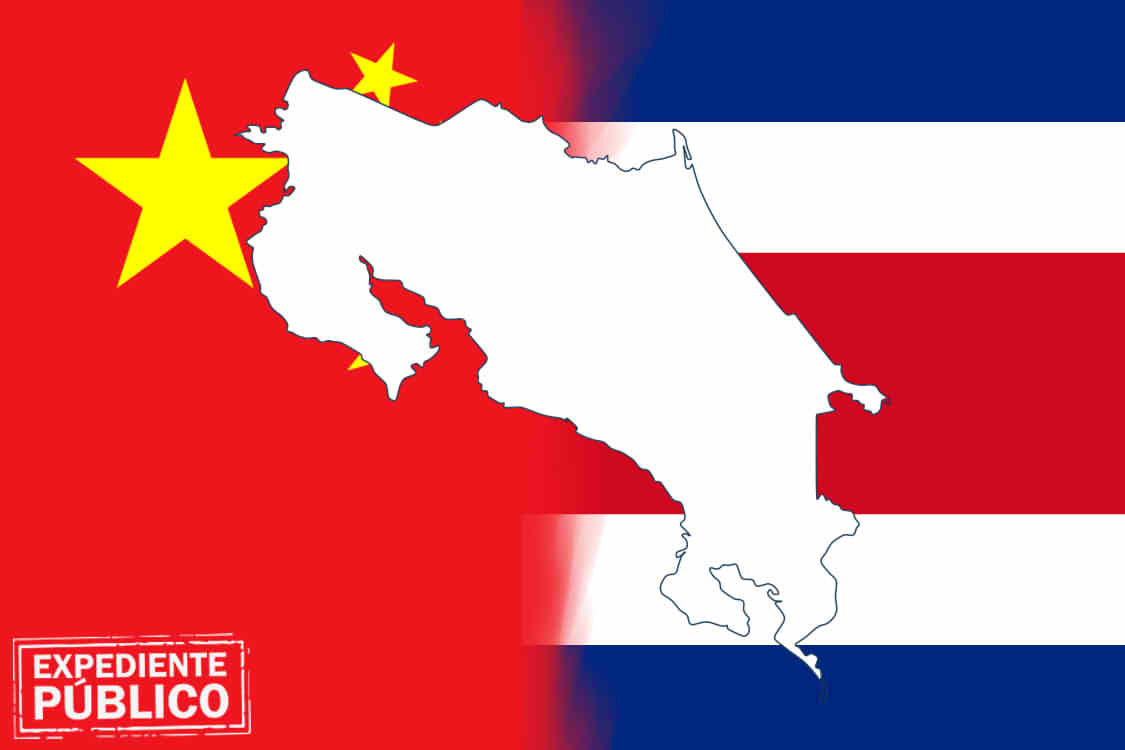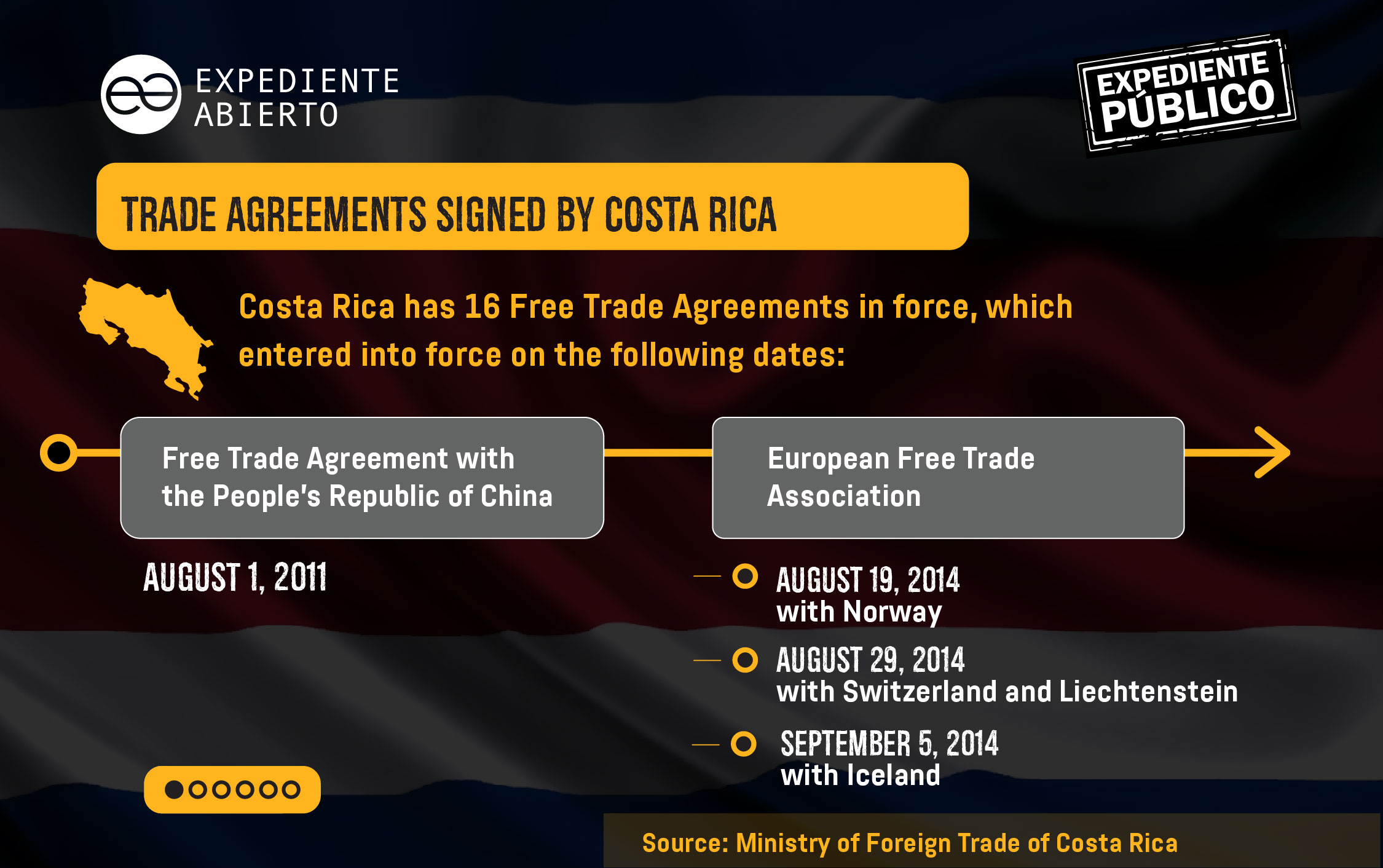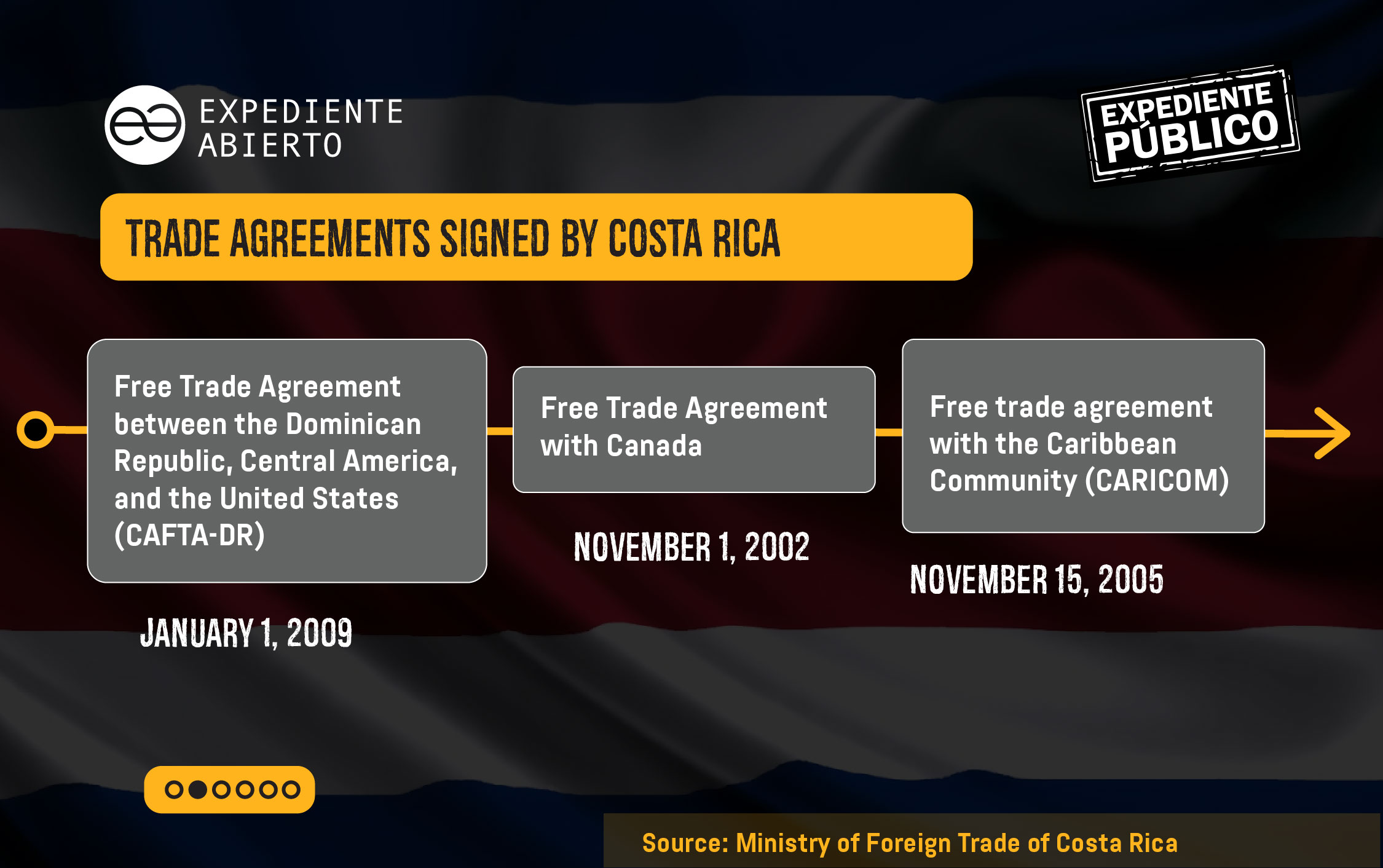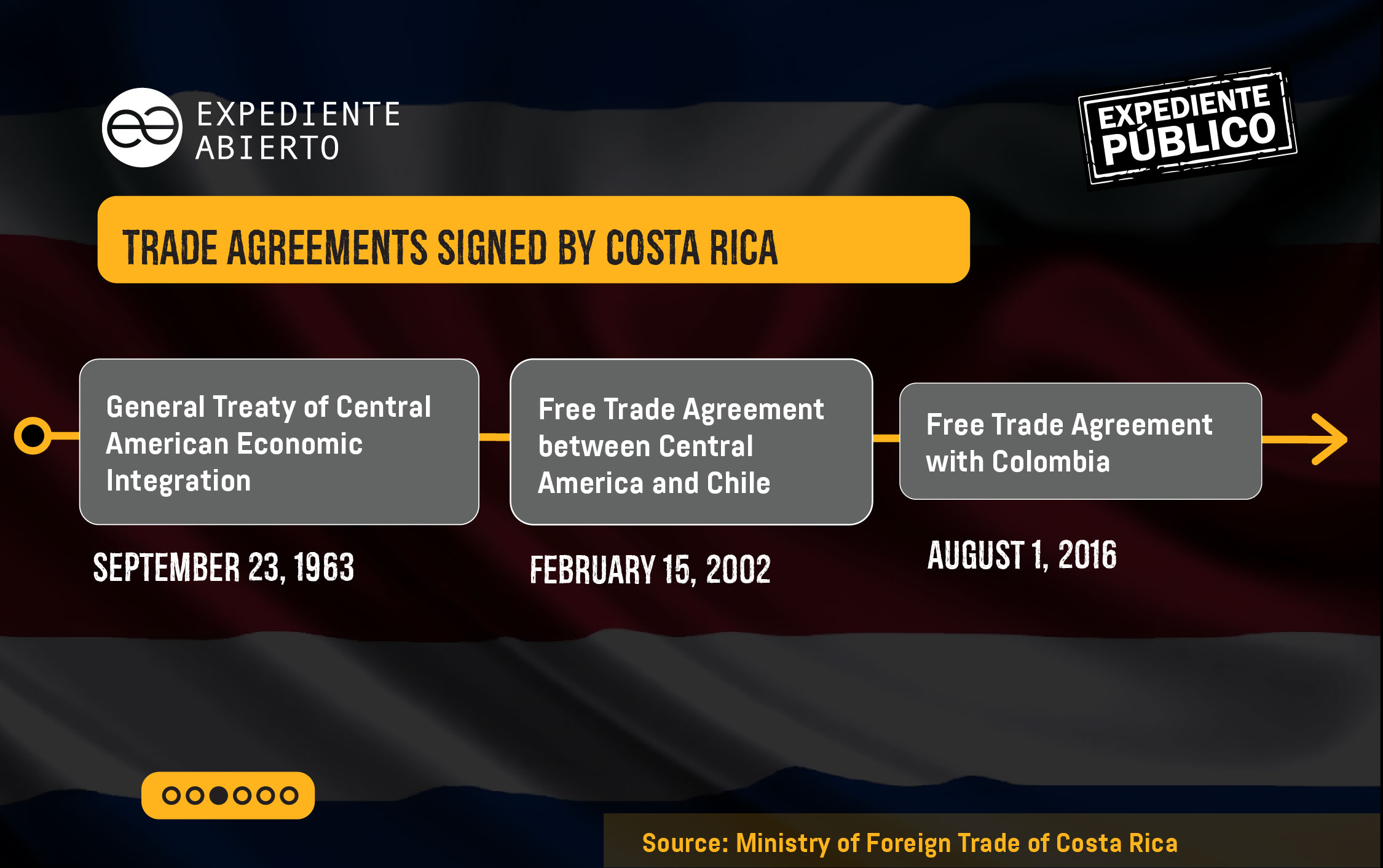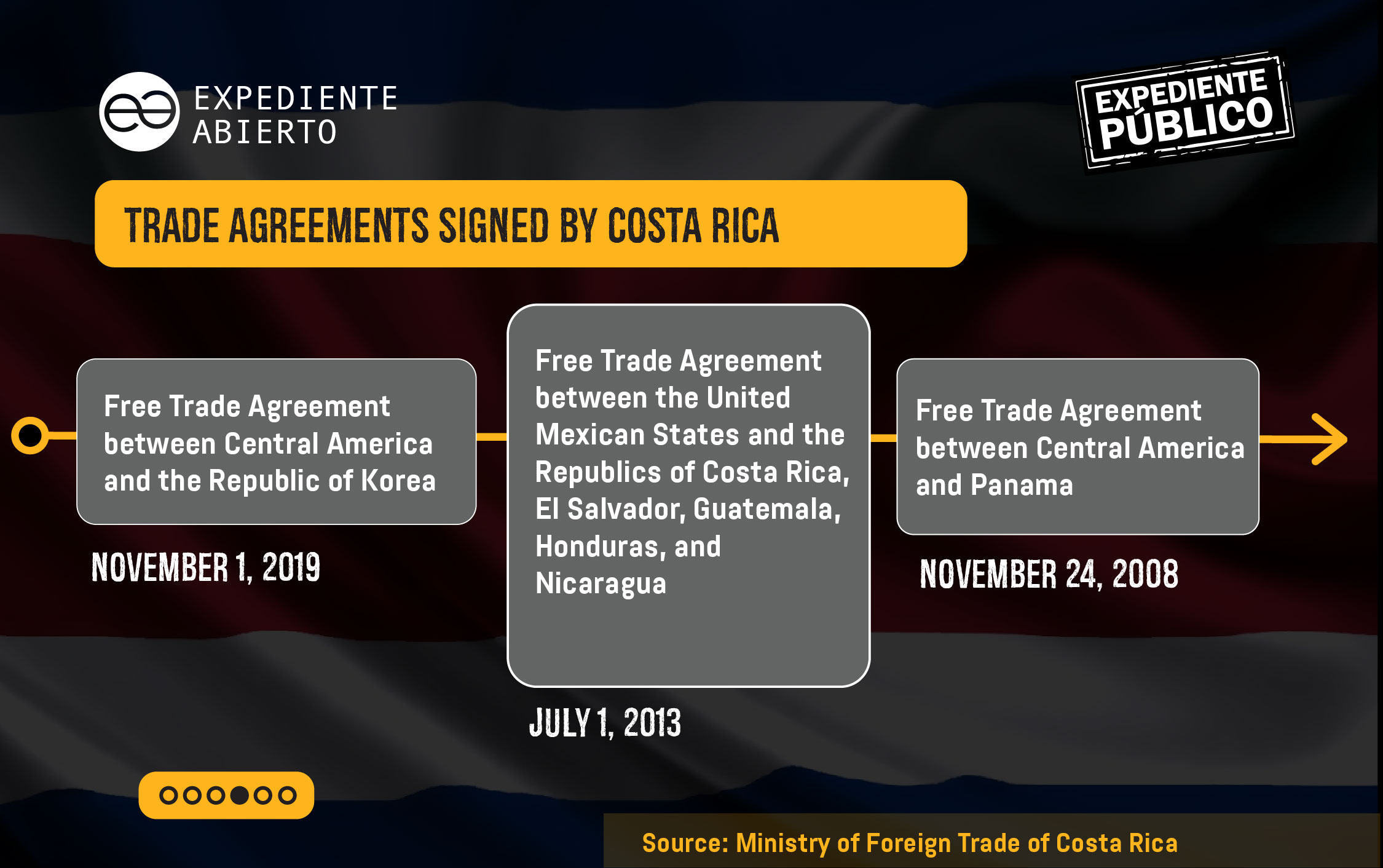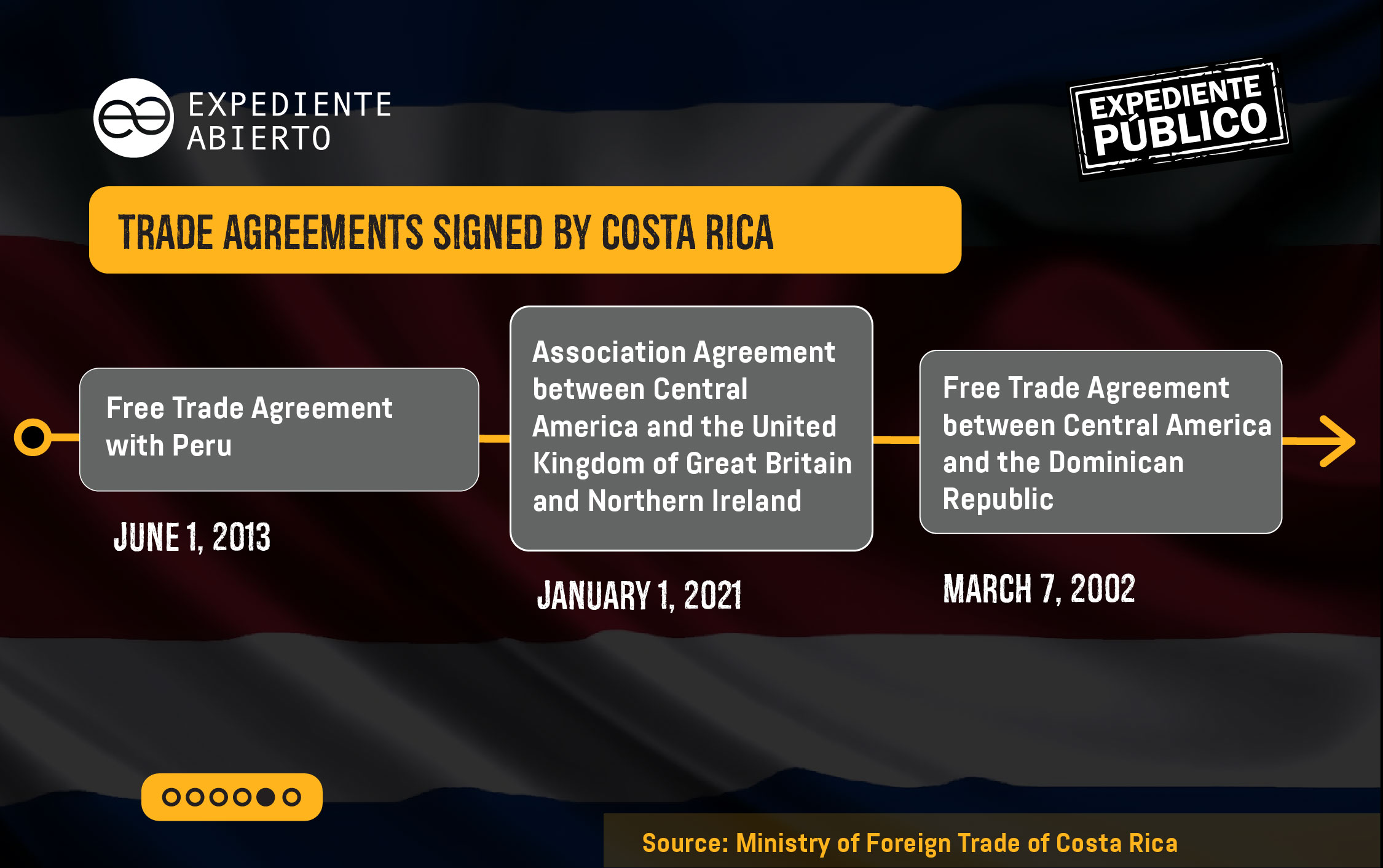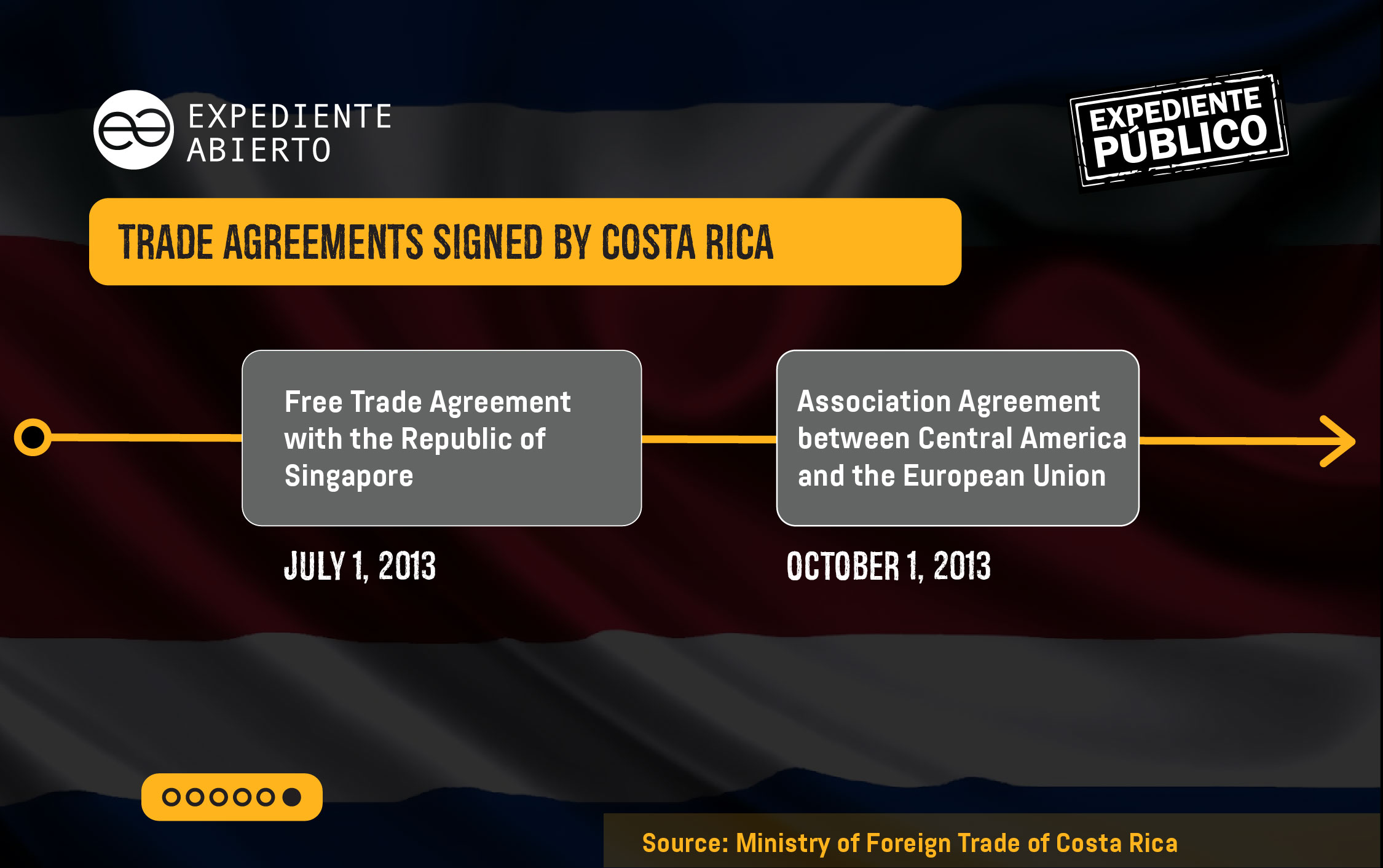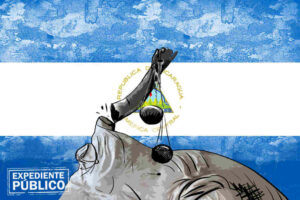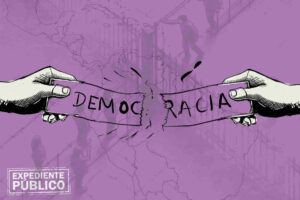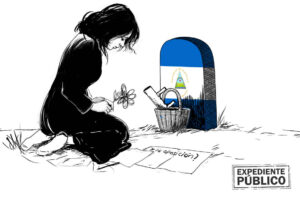*Costa Rican relations with the People’s Republic of China are «eminently negative in different sectors,» mainly trade, concludes a study by the think tank Expediente Abierto.
**Costa Rica has a deficit of almost 90% in trade with China.
***China, according to the analysis, since the beginning of diplomatic and commercial relations with Costa Rica, has prioritized expanding its influence in Latin America to the development of its partners.
Expediente Público
Costa Rica marked a significant milestone by becoming the first country in Central America to establish diplomatic relations with the People’s Republic of China (PRC).
This step was celebrated as an opportunity for development, however, the case study of Expediente Abierto entitled «China’s influence in Costa Rica» reveals an asymmetrical relationship that poses considerable challenges for the Central American country.
The think tank’s case study indicates that as a result of these bilateral relations there is a huge trade deficit and millions in losses in projects such as the refinery of the Sociedad Reconstructora Chino Costarricense S.A. (Soresco), for which San José had to take the company to international arbitration.

In addition, there are the losses due to the expansion of Route 32 that connects the Costa Rican Caribbean with the rest of the country.
The research argues that the PRC’s foreign policy interest in the region actually hides weakening Taiwan.
«The Chinese party-state is developing a strategy in Costa Rica similar to that used in the rest of Central America. This consists of the delivery of non-reimbursable cooperation in exchange for breaking diplomatic ties with Taiwan,» says the case analysis of Expediente Abierto.
Subscribe to the Expediente Público newsletter and receive more information
The non-reimbursable cooperation offered by China is manifested, for example, in the stadiums that are offered as gifts “as a token of friendship.”
However, one of the most critical and least favorable points for Costa Ricans is the imbalance in the export-import balance. Costa Rica faces an alarming deficit of almost 90% in its trade with China.
Despite all this, Expediente Abierto’s research indicates that it is «a trend among the presidents of Costa Rica, since the establishment of diplomatic relations with China, the deepening of these by various means,» for example, new bilateral agreements.
China’s geostrategic interest
Costa Rican specialist Andrei Calderón, an expert in customs administration and international trade, explained for the report that the connection with China is due to an economic strategy proposed from the beginning by then-President Óscar Arias (2006-2010).
Also: Ryan Berg: China helps consolidate authoritarianism in the region
«Within the diplomatic and trade advisory corps of the government of the day, the idea of diversification began to be seen or glimpsed (…). From a purely trade strategy point of view, this was sold as a great opportunity,» says Calderón.
The establishment of diplomatic relations in 2007 and the subsequent signing of the Free Trade Agreement (FTA) in 2010, still under the mandate of President Óscar Arias (2006-2010) was of great interest to China, Calderón adds.
According to the expert, China saw in Costa Rica an excellent opportunity to expand its influence in Latin America, because the country is «in a broadly geostrategic area» that serves as a bridge between Mesoamerica and South America.
«Costa Rica along the way begins to understand that there is also a geostrategic background here,» explained Calderón, who also has a specialty in Geopolitics and Commercial Geostrategy.
The FTA, according to Calderón, became a geostrategic tool to «generate areas of influence.» “This, at least, the Arias government was clear about,» Calderón added.
You can read: Chinese companies will be able to exploit 222 thousand mining hectares in Nicaragua
The report cites that the government of former president Óscar Arias took advantage of this initiative of opening up China’s attraction to promote economic cooperation, infrastructure cooperation (and) scientific cooperation.
Trade unfavorable to Costa Rica
Costa Rica faces a considerable challenge in achieving a positive trade balance. Despite the 16 trade agreements in force to date, the only country with which Costa Rica maintains a positive balance is the Dominican Republic.
To date, China is Costa Rica’s second largest trading partner, only behind the United States. Expediente Abierto’s case study highlights that «trade relations with the United States continue to be the most beneficial for both countries.»
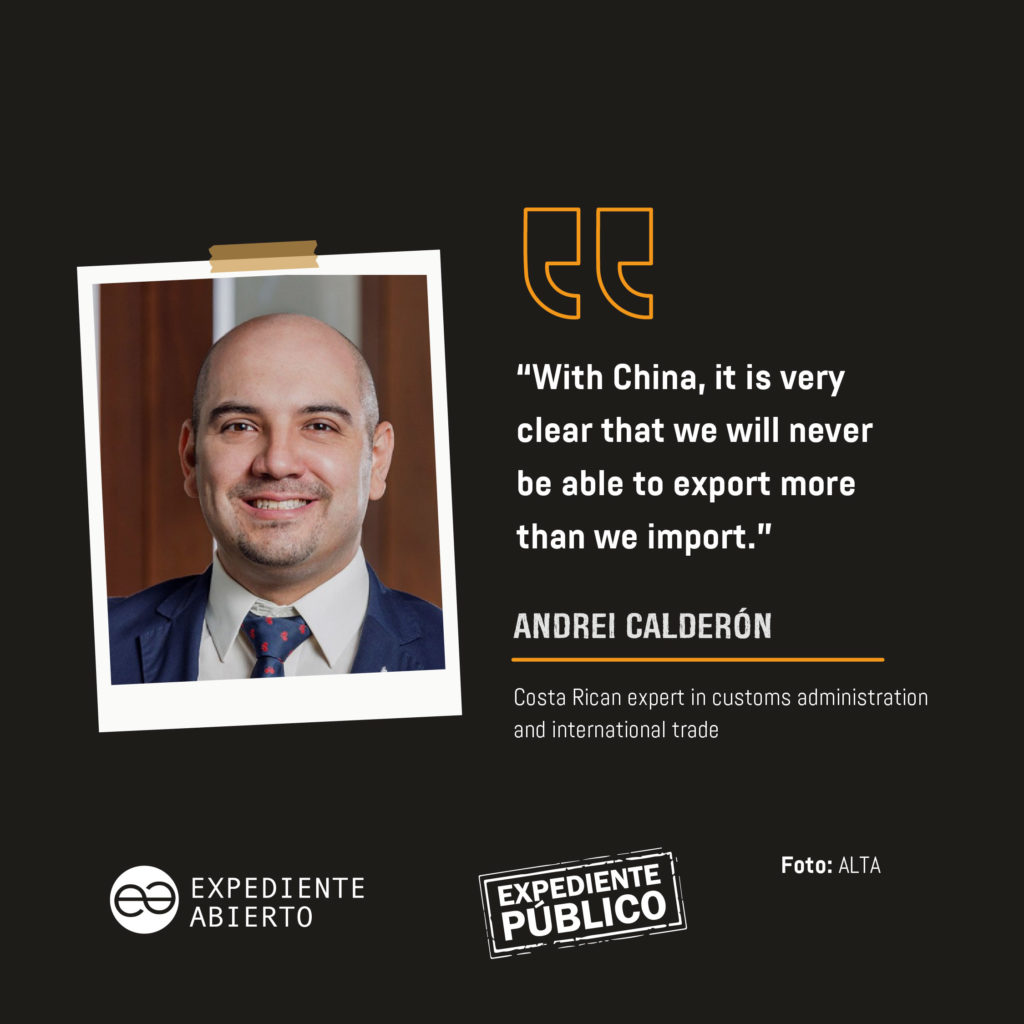
Chaves’ position
Since Costa Rica formalized its diplomatic relations with China, there has been a constant effort by all presidents to strengthen and expand bilateral cooperation, which has not left the Central American country with good results.
«Since Arias’ mandate, through Laura Chinchilla, Luis Guillermo Solís, and Carlos Alvarado, infrastructure works have been planned and implemented that, operated by Chinese companies, have left a confusing legacy of bad practices and little transparency,» adds Expediente Abierto.
In these 17 years of diplomatic relations, the only exception seems to be the government of Rodrigo Chaves (2022 to date), who adopted a stance more aligned with US interests, marking a difference with respect to the trend of other presidents in relation to China.
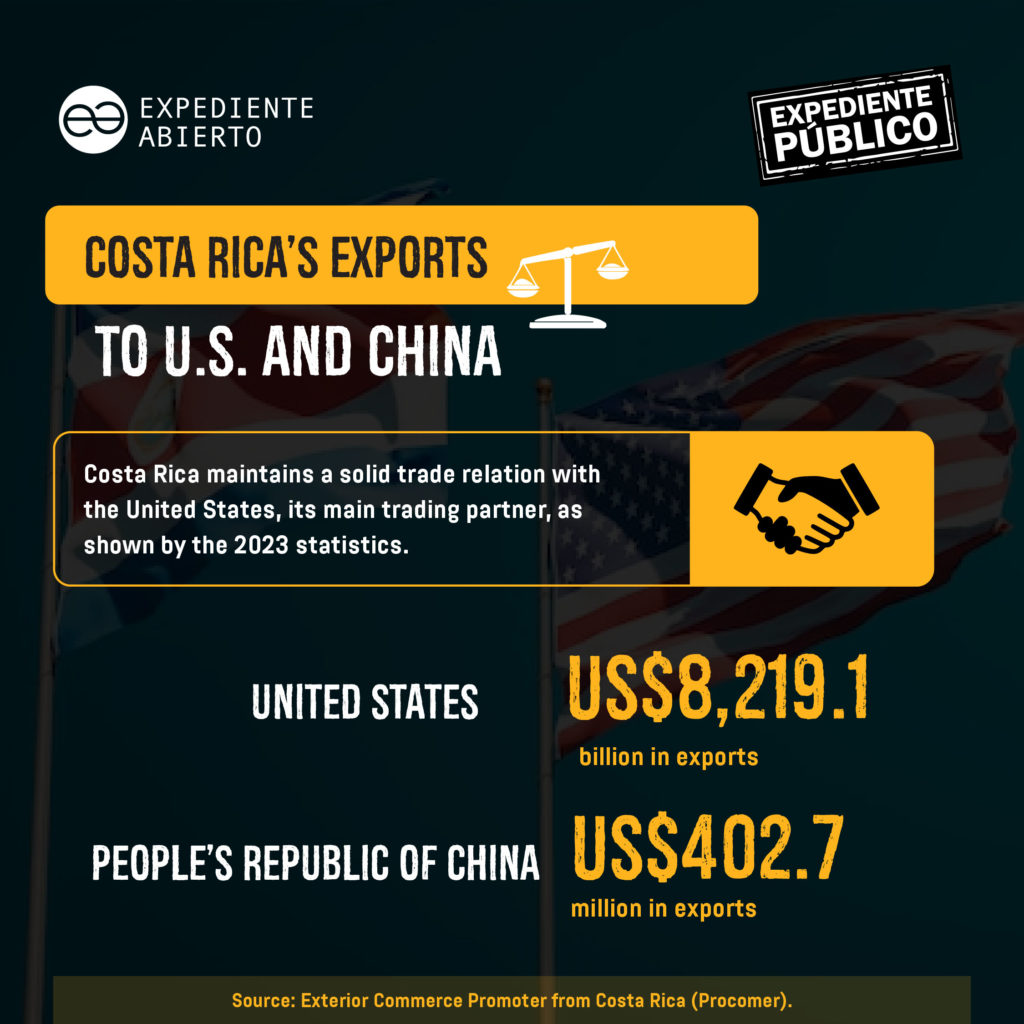
The decree issued by Chaves in August 2023 prohibiting the Chinese multinational company Huawei, and any other company from countries that have not signed the Budapest Convention on Cybercrime (2001), from developing 5G technology on Costa Rican soil, is the clearest example of the distance that this government has marked.
Also: Guatemala’s exports to China: What is the real scenario?
The issuance of the Chaves administration’s decree occurred days after Laura Richardson, commander of the U.S. Southern Command, visited the Central American country and expressed concern about China’s advance in Latin America.
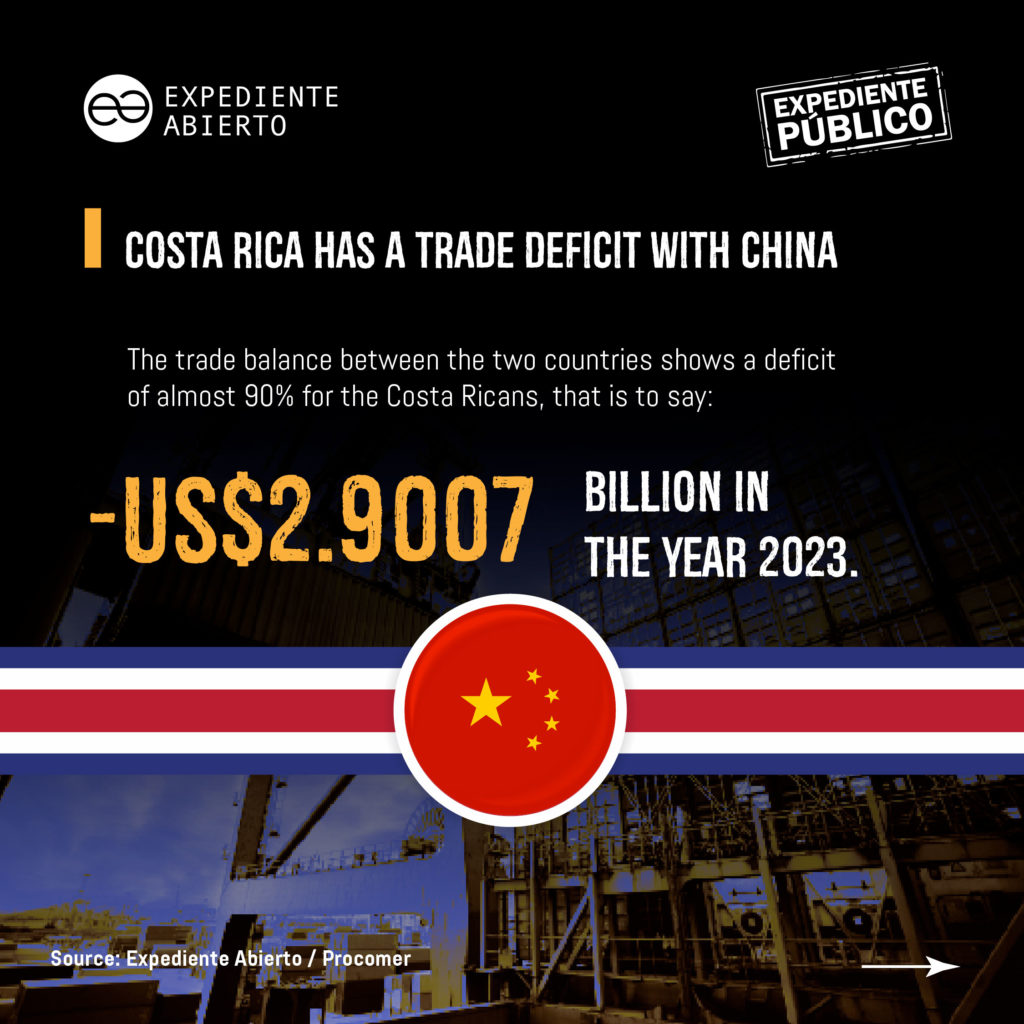
Expediente Abierto’s analysis also recommends opening «spaces for dialogue for political, academic, union and civil society actors who have expressed, in a dispersed manner, opposition and rejection of the controversial projects of China and its companies in Costa Rica.»
On the other hand, the issue of negotiated bilateral investment treaties should be raised, «since they leave the Costa Rican State at a disadvantage compared to foreign companies.»
«Costa Rica should preserve and deepen ties with the United States, benefiting from the investments that its main trading partner offers in various sectors such as microchips,» concludes Expediente Abierto in its case study.

